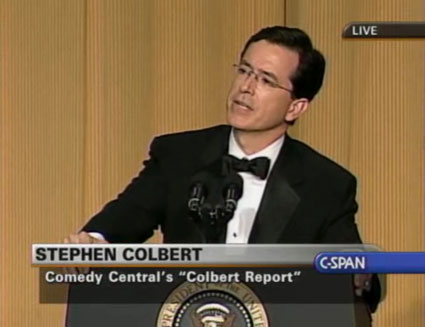Originally published Feb. 9, 2017 | Link to original
Dear Friend and Reader:
What exactly are we supposed to do? That’s the question. It’s a little like The Onion’s fictional lady, Christine Pearson of Topeka, who baked an American flag cake after 9/11, just so she could do anything at all.
"I had to do something to force myself away from the TV," said Pearson, 33, carefully laying rows of strawberry slices on the white-fudge-frosting-covered cake, The Onion reported in its first edition after the Sept. 11 incident. Note: The Onion is parody, not fake news; the difference is a matter of intent.

We can do better than a flag cake. It’s just that these flesh-eating zombies are everywhere: you know, the ones who still think Barack Obama was born in Kenya, or who have Confederate flags flying from their pickup trucks (in Connecticut), or think that all three million people who voted illegally in California were undocumented Mexicans, or who think that the murder rate is the highest it’s ever been, or who are certain that Donald Trump is a thriving, self-made business genius. Hey, he sure is running the country like a business.
Or the women who don’t know what misogyny is, and who voted for someone who bragged about committing sexual assault. Or who think that there really was a terrorist attack in Bowling Green.
You know, the people deeply rooted in their world of alternative facts, who tell us that we are the ones who live in a bubble and laugh about how we didn’t realize what unmitigated assholes they are.
It is frustrating: this thing that sociologists call epistemic closure. There’s a term for it, which in essence means a closed information loop. Someone who watches Fox News and only Fox News, and is convinced that everyone else is deceived, and that no other facts are worth considering, has a closed epistemology. They might claim (and often do) that anything they don’t agree with is a lie.
Epistemology is the study of how we know what we think we know. Smart people ask themselves: how do I know this? Other people hear something and believe it if they like it — and for sure, mere belief as the standard for truth is most of the problem. (It’s most of the problem with astrology; most astrologers have not a scant clue how they know what they know, which I call the epistemology problem.)
People whose lives are dictated by epistemic closure are unlikely to change. For them, it’s an urgently necessary defense mechanism. And if nobody has said it recently, we don’t need them to change. In fact, the notion that they can change and that we might help them change is a trap. The alternate is not preaching to the choir; rather, we who approach existence with some curiosity and a touch of humor are the ones who need to get smarter, and teach one another to be smarter and more effective.
Practicing your religion is not about all those sinners; it’s about you being more faithful. This is the way out of ‘us and them’ thinking. Also, in no way must you be unkind to anyone; you just don’t need to give them your precious time and energy. You don’t owe your blood to any vampires.

I’ve done my bit interviewing Trump supporters, at some length. I probe them for what they think, and how they know that what they think is true.
When I challenged one about The Donald’s refusal to release tax returns, I was counter-challenged with the alternative fact that Barack Obama was born in Kenya, and that he refused to release his long-form birth certificate, which is also not true and not related. This kind of thinking is indeed maddening. I hope you don’t share a bed with one of these people, but if you do, what I’ve got for you today may help you focus your purpose and keep your sanity. It’s true that we’re dealing with a political situation on one level, but it’s really a social situation, with deep psychological roots.
A conversation is actually happening, for the first time in a long time. The only thing more maddening about a Muslim ban would be nobody caring — and people do care (as indicated by many things, including hundreds of amicus briefs being filed with the 9th Circuit appellate court — for example by every major tech giant in the United States). As of today, the judicial branch has put a stop to the thing, and there was a hearing for the appeal Tuesday, which the president called a disgrace — and most people see how ridiculous that is.
The thing you must not allow to happen is for you to let anyone convince you that you’re crazy. When someone is absolutely dead wrong but won’t admit it, their only way out of that loop (for them) is to deny your existence; that is, you and all your annoying data. It’s essential to understand the psychological and emotional motive: if you are crazy, they are not.
The term "gaslighting" has come into popular use here in the Trump Age. (Incidentally, the word "trump" means to lie, or to mock, or to blow a trumpet. So it goes.) Gaslighting comes from the 1940 classic film Gaslight, starring Ingrid Bergman and Charles Boyer.

To get the full effect, you need to feel the pain that Bergman’s character experiences at being convinced she’s going mad (in a time when that accusation could land someone in a mental ward, stripped of their rights, particularly if the accusation came from a husband). He has a criminal motive; gaslighting almost always conceals a crime. Please Netflix this great film and witness what this is really about. It’s about sanity.
You don’t need to convince anyone that they are nuts, or a liar, or a fool — nor can you. Rather, you need to hold your ground and really get that you are not crazy, in an environment where there is plenty, plenty designed to drive you crazy.
Over the past year or so, I have developed an understanding of this epistemic closure problem. A while back I was introduced to the work of a Cornell psychology professor named David Pizarro. What he discovered is that when someone considers themselves to be conservative, it may have nothing to do with their political beliefs. That’s why reasoning with them is impossible.
Rather, it’s about how disgusted they are. There is a growing stack of research that attributes the emotion of disgust (with rotten stuff, dead things, vomit, perspiration, etc.) with conservative political views: wanting to ban immigrants, being against women (and their bodies) or against darker people, wanting to keep guns ostensibly to shoot disgusting people, and so on. This theory impressed me when I first heard about it, but as I watched the Trump phenomenon develop, I noticed how often he said the word disgusting.
He was openly and admittedly disgusted by the notion of Megyn Kelly menstruating, or of Hillary Clinton using the restroom. So a few weeks ago, I wrote to Prof. Pizarro and asked whether he’d noticed that his theory was being demonstrated true before his eyes. He wrote back and shared this article in which he was interviewed, called Donald Trump and the Politics of Disgust.
I am emphasizing this point for the sake of our collective sanity. There is no reasoning with an emotional hang-up. It’s not lodged on the level of reason. It’s an emotional and biological nexus (most disgust involves the body). Don’t drive yourself nuts trying to reason. Rather, have some fun and get them talking about how disgusted they are, or just walk away from the conversation.
Now, back to that flag cake and epistemic closure. Many people want to do something. What can they do? Notice that I came out of the epistemology of politics (proving that these people who think that baldly racist Jeff Sessions, confirmed this week as attorney general, is a genius) and correlated it with the emotion of disgust. It’s essential to work with open epistemology. That is to say, you need to be open to new information and ideas on an ongoing basis.

It’s a fun game, thinking you know something and trying to disprove it. It’s fun to figure out why you believed something that was not true. (It’s less fun to figure out how someone got away with lying to you, but you need that information.) Once you figure out how little you know, you may find that you’re a lot more interested in actually finding out.
Then we need to address the problem of belief. David Bowie urged us not to "deceive with belief," suggesting that it’s a form of a lie. The key to this is: don’t believe anything. Rather, consider it. Substantiate it, or knock it down. Yes, this takes effort, research, reflection and study, but mostly it’s a mental habit of not simply swallowing data, rumors, inuendos or something you read “on the internet” as true.
Be a little skeptical of what you hear; just like how you chew your food before swallowing, and if you bite into something weird, you spit it out. This is not about being cynical. It’s about saying, "Oh really!" to everything, with a bit of wry wit.
If you’re wondering what you can do to help your country and stem the tide of fascism, here are two ideas. First, learn one issue. Pick the one you’re the most interested in. It could be anything: NAFTA, reproductive rights, the KKK, who Steve Bannon is, oil pipelines, LGBT rights — whatever. Get to know that one issue. Track it in the news, dig into its history, and watch it develop.
Pretty soon, you’ll start to have little breakthroughs, and you’ll be able to spot truth and lies in the media — on that issue. You’ll start to notice where things are simplified to fit the format of TV or an article. Then, explain the issue to other people who feel like listening to you. Have fun with this, in the spirit of, "Wow, check out what I learned last night."
With this, develop the skill of evaluating the analysis of pundits. Follow how they combine supposed facts and arguments. When you catch them lying, scream at the television and email the network. If you’re reading an article, jump into the comments and set the record straight.

Still included with suggestion #1, there’s a skill you learned in school that it will help to remember, which is discerning between a primary and a secondary source. A primary source is (for example) a government document. A secondary source is an article or newscast about that document.
Just because someone said something on the news or in an article does not make it true. Just because something is an actual primary source document does not make it true; it still needs to be verified, if it’s going to be acceptable.
If you’re thinking this is all too much to bother with, you have your answer as to why Donald Trump is president. The most important thing you can do for your country, and for your sisters and brothers, is to use and develop your intelligence. It’s our most important natural resource, and we need to get it going. Keep asking yourself how you know what you think you know. Cultivate some pleasure in being proven wrong, as well as pleasure in figuring out you got it right. Then, be ready for new data to come along.
In this quest, we’re not seeking absolute truth. We’re seeking something I call "true enough," a term my Canadian friends taught me. True enough means that something surpasses a certain threshold you’ve set, and will serve a purpose. Some jobs require a 3mm flathead magnetic screw driver. Some screws you can turn with a penny. This works intellectually as well. Use the right tool for the job.
As for suggestion #2, keep your sense of humor. This may take a little development or a refresher, though it will help you maintain your sanity, and it will help defeat evil. There is a relationship between wit and wits. Borrowing something I learned from Chogyam Trungpa Rinpoche, sense of humor does not just mean ha-ha. Rather, it’s also about keeping your mind alert and limber, spotting the irony or intrigue in anything that gets your attention. Humor and curiosity are close cousins. I am fond of investigating why I find some things so funny.
Most of what we see going on is pretty ridiculous, even if it’s tragic and absurd and hateful. We use humor a lot to process these things in American society these days; most people are not ready to honestly address the grief of the situation. Yet humor really does help, and not just to make us feel better. Right now humor, including ridicule, is an important weapon (and it has deep roots as a spiritual tool, for example, in the Heyoka tradition of the Lakota people).

The people who are currently trying to take charge of the country and of our reality take themselves seriously, and their egos are extremely brittle. Well-done satire is devastating to them — as devastating as losing in court. They are proceeding based on being taken seriously, as heroes or as an actual threat. Neither holds up to laughter. Laughing is also a psychological indicator that you feel safe. (Jonathan Cainer was fond of saying, “And we’re laughing!” by which he meant, "Nothing to worry about here!")
When Stephen Colbert skewered George W. Bush at the White House Correspondents’ Dinner one year, it became impossible to take Bush seriously again. (If you have not seen that, please treat yourself to watching it. Oh, I covered the astrology of that event here.)
Last weekend, Saturday Night Live ripped into White House press secretary Sean Spicer, with Melissa McCarthy portraying him as the petty tyrant that he is. This is not just funny. It exposes these people for who they are, and reveals their tactics for what they are. It has a deep personal influence on the butt of the joke, while it eases the pressure on the rest of us (including the White House press corps, who you can be sure are chewing the erasers off their pencils lately).
Many people are concerned that what we’re seeing resembles Germany in the 1930s, which it does in some ways. And we may indeed be on the slippery slope to fascism in the United States. One important difference is that we are not the hapless Germans of that era, easily convinced that the Jews are the whole problem. Rather, a great many of us are either showing up for pro-immigration rallies at the airport, or cheering the protesters on. I assure you, nobody was openly laughing at Hitler in Germany (Charlie Chaplin famously saw the irony and the tragedy).
At the moment, we are laughing and they are not. Keep your wits about you.
Lovingly,

PS — Great news on the eve of the eclipse: the 9th circuit federal appellate court tonight unanimously refused to reinstate the travel ban against Muslims. It could now go to the Supreme Court, which is still split 4-4, assuming the judges vote ideologically according to party lines. It’s likely that the Trump administration will abandon this effort. Here is New York Times coverage.



